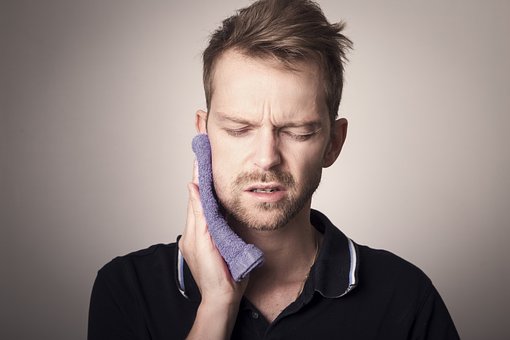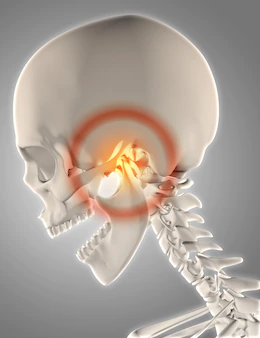Do you ever feel like your jaw is constantly clenched? Or that you wake up with a headache or feeling like you’ve been grinding your teeth in your sleep? If so, you’re not alone. According to the American Dental Association, about 10% of Americans suffer from bruxism, which is the medical term for clenching or grinding your teeth. While bruxism can happen at any time, it’s most common at night. Fortunately, there are ways to relax your jaw and ease the tension. Read on to learn more!
1. Avoid Chewing Gum.
Chewing gum is a common trigger for bruxism because it puts extra strain on the muscles in your jaw. If you’re a gum chewer, try to cut back or chew sugar-free gum instead.
2. Practice Good Posture.
Poor posture can contribute to tension in the jaw, so make sure you’re sitting up straight and keeping your head level with your shoulders. If you work at a desk, take frequent breaks to walk around and stretch your body.
3. Do Facial Exercises.
There are specific exercises you can do to relax the muscles in your face and jaw. One simple exercise is to place your tongue on the roof of your mouth and open your mouth wide, then close it slowly. You can also try placing your fingers on your cheekbones and massaging in a circular motion.
4. Apply Heat Or Ice.
If your jaw is feeling particularly tense, you can try applying heat or ice to the area. Heat will help to relax the muscles, while ice can help to reduce inflammation.
5. See A Dentist Or Doctor.
If you’ve tried all of these methods and nothing seems to be helping, it’s time to see a professional. Your dentist can check for signs of bruxism and recommend treatments, such as wearing a mouth guard at night. You may also need to see a doctor if bruxism is causing headaches or disrupting your sleep.
relaxing your jaw is important for overall health and wellness. By following these tips, you can ease the tension and get back to feeling your best!

The Causes Of Jaw Tension And How To Prevent Them
The causes of jaw tension can vary, but some of the most common ones are excessive gum chewing, teeth grinding, and clenching your jaw. If you find yourself doing any of these things often, it’s important to take steps to relax your jaw muscles. Here are a few tips:
1. Make sure you’re chewing gum correctly. When you chew gum, make sure you’re using your front teeth and not your back ones. Also, don’t chew for too long – 10-15 minutes is plenty.
2. Avoid crunching on hard foods. If you can’t help but crunch on hard foods like chips or nuts, try to do it in moderation and be sure to chew slowly and thoroughly.
3. Use a warm compress. Place a warm compress on your jaw for 5-10 minutes a few times a day to help relax the muscles.
4. Stretch your jaw muscles. Gently stretch your jaw muscles by opening your mouth as wide as you can and holding for 5-10 seconds. Repeat 3-5 times.
5. Practice relaxation techniques. When you feel stressed out, practice some relaxation techniques like deep breathing or visualization exercises to help calm your mind and body.
By following these tips, you can help prevent jaw tension and keep your muscles relaxed. If you find that your jaw tension is severe or chronic, be sure to see a doctor or dentist to rule out any underlying medical conditions.
What to do if you can’t relax your jaw on your own

If you find that you can’t relax your jaw on your own, there are a few things that you can do. One is to use a relaxation technique such as deep breathing or visualization. Another is to use a muscle relaxant such as benzodiazepines or beta blockers. Finally, you can see a dentist or other oral health professional to help you relax your jaw.
Benzodiazepines:
a class of psychoactive drugs that act as central nervous system depressants, including tranquilizers, sedatives, and hypnotics.
beta-blockers: a class of drugs used to treat heart conditions, anxiety disorders, and other conditions. Beta-blockers work by blocking the effects of the hormone adrenaline.
Conclusion:
There are many ways to relax your jaw and ease the tension that comes with bruxism. massage therapy, stretching, eating soft foods, avoiding alcohol and caffeine, and practicing stress-relieving methods like yoga or meditation can all help reduce symptoms of bruxism. Talk to your doctor if you’re concerned about bruxism or if home treatment methods haven’t worked after a few weeks.
You May Also Like The Following: